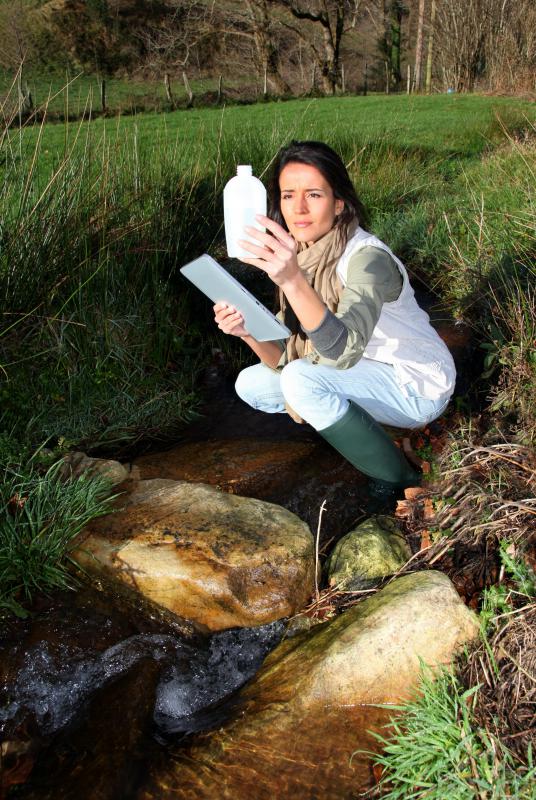At WiseGEEK, we're committed to delivering accurate, trustworthy information. Our expert-authored content is rigorously fact-checked and sourced from credible authorities. Discover how we uphold the highest standards in providing you with reliable knowledge.
How do I Become a Field Geologist?
With the majority of their time spent doing hands-on work outdoors, field geologists have one of the most fascinating ecology jobs. They study the Earth, what it is made of, and its history. Geologists also study forces that act on the Earth and things living there, such as landslides, volcanoes, and other natural occurrences.
A field geologist is someone who studies geology "in the field." To become a field geologist, you should start studying physical and natural sciences in high school. Biology is one of the best courses that you can take in high school to become a field geologist. Math and writing courses are also essential to a career as a field geologist. Even in courses not related to the field, high grades are still essential. A high average will make it easier to get into a top college after high school graduation.

When looking at colleges, try to find a school that has experienced professors, a lot of opportunities for hands-on training, and an internship program. During your college years, expect to take general studies courses, such as composition, history, and any other requirements that your specific program may have. The majority of your classes, however, will be based in geology.

To become a field geologist, you will be taking courses in Earth minerals, natural processes, and technical writing. Several courses will have lab work that needs to be completed, providing an opportunity for hands-on learning. Earth history, oceanography, paleontology, geochemistry, and physical geology are common courses offered in most geology degree programs. Many programs will require students to spend a summer doing field work, usually under the supervision of a professor, as a graduation requirement.

After graduating from a degree program, then next step you must take to become a field geologist is to find work in your field. There are a variety of possible careers in field geology. One option is to work as an environmentalist, protecting and studying the Earth as part of an effort to protect it. These positions are usually available through government agencies, special interest groups, and local conservation companies. Another possible career is to work for large corporations, helping them to work with, or around, challenging geological features when developing new business sites.
Most geologists start in entry-level positions and then work their way up into better positions, performing tasks like discovering clean water supplies, determining how safe an area will be to build on, and uncovering underground resources. To become a field geologist, you should have a love of the outdoors and be a very visual person, able to tell a lot about a geological feature by simply looking at it. Although it can be a challenging job, many who choose to become a field geologist find it a very rewarding career.
AS FEATURED ON:
AS FEATURED ON:













Discuss this Article
Post your comments